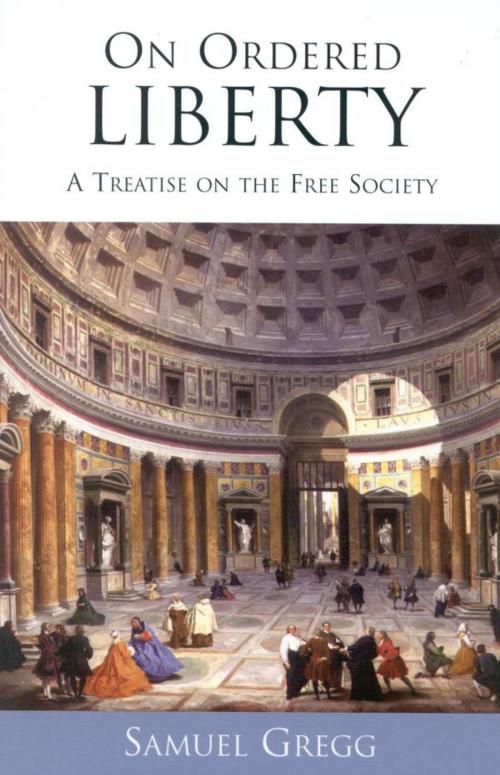| Author: | Samuel Gregg | ISBN: | 9780739158401 |
| Publisher: | Lexington Books | Publication: | July 28, 2003 |
| Imprint: | Lexington Books | Language: | English |
| Author: | Samuel Gregg |
| ISBN: | 9780739158401 |
| Publisher: | Lexington Books |
| Publication: | July 28, 2003 |
| Imprint: | Lexington Books |
| Language: | English |
Perhaps no issue is more divisive among philosophers, jurists and theologians than the nature of human liberty. Liberty is central to the claims of the Christian Gospel, the Glorious Revolution of 1688 and the American Revolution. But discussions about the nature of freedom have been characterized by profound disagreement and unsettling questions. What does it mean to be free? Is freedom worth more than mens' lives? Why should man be free? What, if any, legitmate responsibilities accompany freedom? These subjects are that the heart of Samuel Gregg's new book On Ordered Liberty. Beginning with the insights of Alexis de Tocqueville and some natural law theorists, Gregg suggests that something which he terms 'integral law' must be distinguished from most contemporary visions of freedom. He argues that this new arrangement requires a complete repudiation of utilitarian ideas on the grounds that they are incompatable with human nature. He also recommends a new and more rigorous focus on the basic but often neglected-question: what is man? On Ordered Liberty goes beyond the liberal and conservative divide, asking its readers to think about the proper ends of human choice and actions in a free society.
Perhaps no issue is more divisive among philosophers, jurists and theologians than the nature of human liberty. Liberty is central to the claims of the Christian Gospel, the Glorious Revolution of 1688 and the American Revolution. But discussions about the nature of freedom have been characterized by profound disagreement and unsettling questions. What does it mean to be free? Is freedom worth more than mens' lives? Why should man be free? What, if any, legitmate responsibilities accompany freedom? These subjects are that the heart of Samuel Gregg's new book On Ordered Liberty. Beginning with the insights of Alexis de Tocqueville and some natural law theorists, Gregg suggests that something which he terms 'integral law' must be distinguished from most contemporary visions of freedom. He argues that this new arrangement requires a complete repudiation of utilitarian ideas on the grounds that they are incompatable with human nature. He also recommends a new and more rigorous focus on the basic but often neglected-question: what is man? On Ordered Liberty goes beyond the liberal and conservative divide, asking its readers to think about the proper ends of human choice and actions in a free society.















